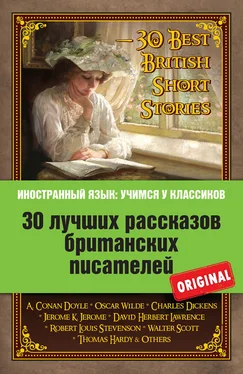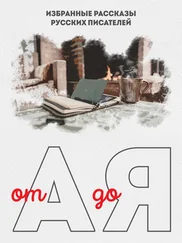There was always the consciousness that Luke would never come back, an impression strengthened by the disasters which were rumoured to have befallen the army in Spain. This tended to make their inertness permanent. The headstone grew green as it lay on its back under Ezra’s bushes; then a tree by the river was blown down, and, falling across the stone, cracked it in three pieces. Ultimately the pieces became buried in the leaves and mould.
Luke had not been born a Chalk-Newton man, and he had no relations left in Sidlinch, so that no tidings of him reached either village throughout the war. But after Waterloo and the fall of Napoleonthere arrived at Sidlinch one day an English sergeant-major covered with stripes and, as it turned out, rich in glory. Foreign service had so totally changed Luke Holway that it was not until he told his name that the inhabitants recognized him as the sergeant’s only son.
He had served with unswerving effectiveness through the Peninsular campaigns under Wellington; had fought at Busaco, Fuentes d’Onore, Ciudad Rodrigo, Badajoz, Salamanca, Vittoria, Quatre Bras, and Waterloo; and had now returned to enjoy a more than earned pension and repose in his native district.
He hardly stayed in Sidlinch longer than to take a meal on his arrival. The same evening he started on foot over the hill to Chalk-Newton, passing the hand-post, and saying as he glanced at the spot, ‘Thank God: he’s not there!’ Nightfall was approaching when he reached the latter village; but he made straight for the churchyard. On his entering it there remained light enough to discern the headstones by, and these he narrowly scanned. But though he searched the front part by the road, and the back part by the river, what he sought he could not find – the grave of Sergeant Holway, and a memorial bearing the inscription: ‘I AM NOT WORTHY TO BE CALLED THY SON.’
He left the churchyard and made inquiries. The honourable and reverend old rector was dead, and so were many of the choir; but by degrees the sergeant-major learnt that his father still lay at the cross-roads in Long Ash Lane.
Luke pursued his way moodily homewards, to do which, in the natural course, he would be compelled to repass the spot, there being no other road between the two villages. But he could not now go by that place, vociferous with reproaches in his father’s tones; and he got over the hedge and wandered deviously through the ploughed fields to avoid the scene. Through many a fight and fatigue Luke had been sustained by the thought that he was restoring the family honour and making noble amends. Yet his father lay still in degradation. It was rather a sentiment than a fact that his father’s body had been made to suffer for his own misdeeds; but to his super-sensitiveness it seemed that his efforts to retrieve his character and to propitiate the shade of the insulted one had ended in failure.
He endeavoured, however, to shake off his lethargy, and, not liking the associations of Sidlinch, hired a small cottage at Chalk-Newton which had long been empty. Here he lived alone, becoming quite a hermit, and allowing no woman to enter the house.
The Christmas after taking up his abode herein he was sitting in the chimney corner by himself, when he heard faint notes in the distance, and soon a melody burst forth immediately outside his own window, it came from the carol-singers, as usual; and though many of the old hands, Ezra and Lot included, had gone to their rest, the same old carols were still played out of the same old books. There resounded through the sergeant-major’s window-shutters the familiar lines that the deceased choir had rendered over his father’s grave: –
He comes the pri-soners to re-lease,
In Sa-tan’s bon-dage held.
When they had finished they went on to another house, leaving him to silence and loneliness as before.
The candle wanted snuffing, but he did not snuff it, and he sat on till it had burnt down into the socket and made waves of shadow on the ceiling.
The Christmas cheerfulness of next morning was broken at breakfast-time by tragic intelligence which went down the village like wind. Sergeant-Major Holway had been found shot through the head by his own hand at the cross-roads in Long Ash Lane where his father lay buried.
On the table in the cottage he had left a piece of paper, on which he had written his wish that he might be buried at the Cross beside his father. But the paper was accidentally swept to the floor, and overlooked till after his funeral, which took place in the ordinary way in the churchyard.
William Fryer Harvey
The Beast with Five Fingers
When I was a little boy I once went with my father to call on Adrian Borlsover. I played on the floor with a black spaniel while my father appealed for a subscription. Just before we left my father said, ‘Mr. Borlsover, may my son here shake hands with you? It will be a thing to look back upon with pride when he grows to be a man.’
I came up to the bed on which the old man was lying and put my hand in his, awed by the still beauty of his face. He spoke to me kindly, and hoped that I should always try to please my father. Then he placed his right hand on my head and asked for a blessing to rest upon me. ‘Amen!’ said my father, and I followed him out of the room, feeling as if I wanted to cry. But my father was in excellent spirits.
‘That old gentleman, Jim,’ said he, ‘is the most wonderful man in the whole town. For ten years he has been quite blind.’
‘But I saw his eyes,’ I said. ‘They were ever so black and shiny; they weren’t shut up like Nora’s puppies. Can’t he see at all?’
And so I learnt for the first time that a man might have eyes that looked dark and beautiful and shining without being able to see.
‘Just like Mrs. Tomlinson has big ears,’ I said, ‘and can’t hear at all except when Mr. Tomlinson shouts.’
‘Jim,’ said my father, ‘it’s not right to talk about a lady’s ears. Remember what Mr. Borlsover said about pleasing me and being a good boy.’
That was the only time I saw Adrian Borlsover. I soon forgot about him and the hand which he laid in blessing on my head. But for a week I prayed that those dark tender eyes might see.
‘His spaniel may have puppies,’ I said in my prayers, ‘and he will never be able to know how funny they look with their eyes all closed up. Please let old Mr. Borlsover see.’
* * *
Adrian Borlsover, as my father had said, was a wonderful man. He came of an eccentric family. Borlsovers’ sons, for some reason, always seemed to marry very ordinary women, which perhaps accounted for the fact that no Borlsover had been a genius, and only one Borlsover had been mad. But they were great champions of little causes, generous patrons of odd sciences, founders of querulous sects, trustworthy guides to the bypath meadows of erudition.
Adrian was an authority on the fertilization of orchids. He had held at one time the family living at Borlsover Conyers, until a congenital weakness of the lungs obliged him to seek a less rigorous climate in the sunny south coast watering-place where I had seen him. Occasionally he would relieve one or other of the local clergy. My father described him as a fine preacher, who gave long and inspiring sermons from what many men would have considered unprofitable texts. ‘An excellent proof,’ he would add, ‘of the truth of the doctrine of direct verbal inspiration.’
Adrian Borlsover was exceedingly clever with his hands. His penmanship was exquisite. He illustrated all his scientific papers, made his own woodcuts, and carved the reredosthat is at present the chief feature of interest in the church at Borlsover Conyers. He had an exceedingly clever knack in cutting silhouettes for young ladies and paper pigs and cows for little children, and made more than one complicated wind instrument of his own devising.
Читать дальше
Конец ознакомительного отрывка
Купить книгу












